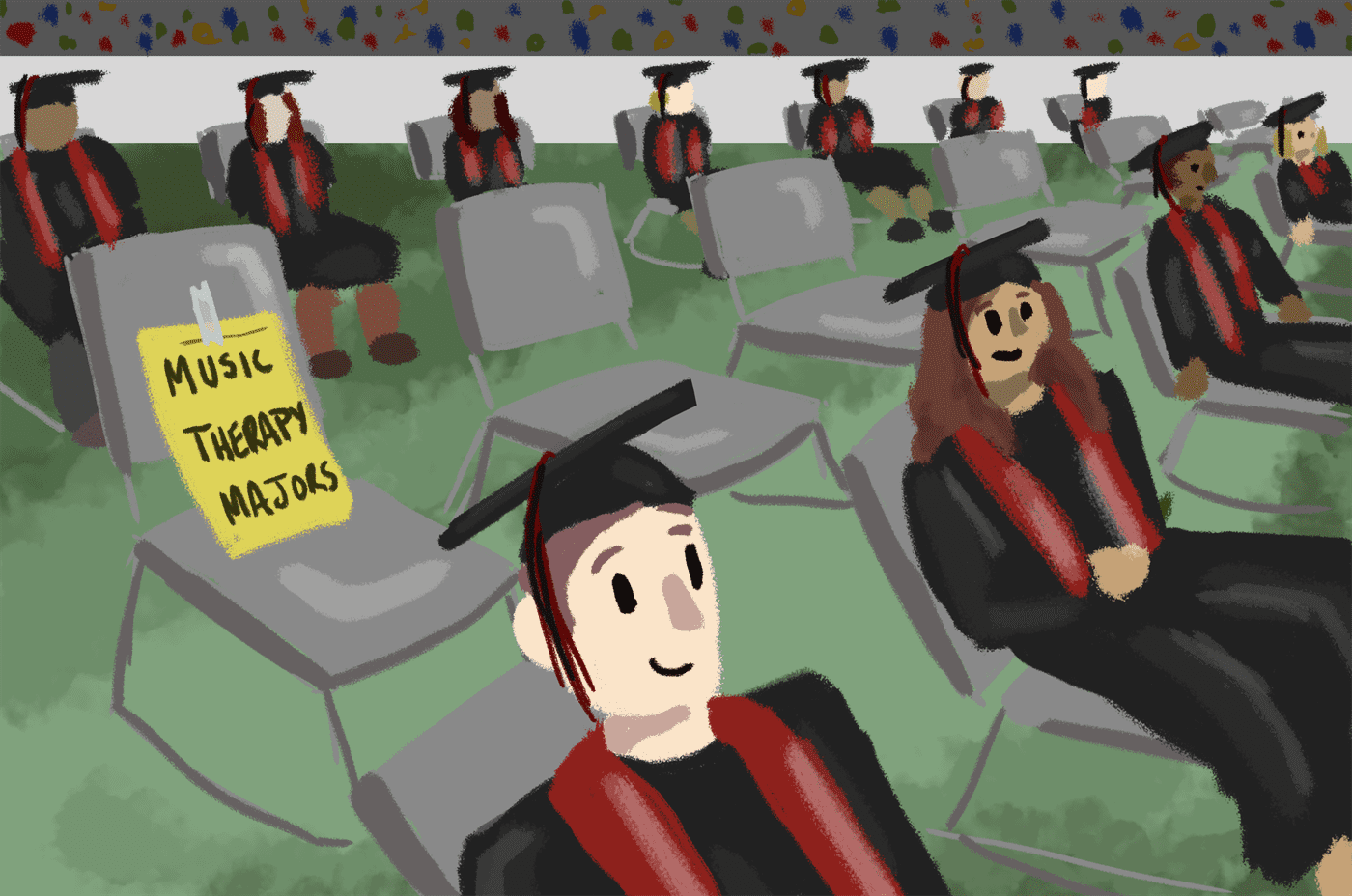For many seniors, walking at graduation is a highly anticipated celebration. Among music therapy seniors at Montclair State University, there have been doubts as to whether or not walking is guaranteed.
Two weeks ago, Brianne Stendardo, a senior studying music therapy, published a petition on change.org requesting that readers “support the rights of our graduating seniors to walk in May of 2020, along with supporting future graduates.”
Stendardo wrote the petition, which has received 889 signatures, after learning that a statewide change in credit requirements may make it more difficult for her graduating class of music therapy majors to walk all together.
She explained that due to the nature of the major, she and her classmates have become close with one another.
“Not only do we have hours and hours of practicing and hours and hours of homework like everybody else, but we also have a lot of emotional digging, and we have to have ourselves in check before we can help others,” Stendardo said. “In these classes, we share very confidential details about our lives and we’re sharing these intimate details with one another, and that just tight knits each class.”
Tony Mazzocchi, associate director of the John J. Cali School of Music, explained that an internship requirement as part of the major typically results in a later graduation ceremony of music therapy students.
“What has always existed is this conundrum where music therapy students, by the time convocation and commencement come, have not yet completed their residency portion,” Mazzocchi said. “In that case, they would need to march in the next year’s convocation. They’ve never been denied it.”
Unlike many majors, music therapy requires students to take a clinical internship before they can graduate. A change in state regulations of credit requirements has made it more difficult for the current class of music therapy majors.
Prior to the change in credits, music therapy students had to take more than the average 120 credit hours that most students are used to. To even things out, the new policy has decreased the amount of required gen-eds and changed the credit value of the internship from one credit to 12. For students close to finishing the program, it has resulted in some members of the same class being closer to graduation than others.
Jacob Sinsky, a senior music composition major, felt that the change was unnecessary.
“I definitely think it’s unfair because if they used to be able to walk before, there’s no reason that they should really need to change it, because I don’t see how it causes any harm to the university or costs them any money,” Sinsky said. “Even though they haven’t finished their internships yet, they still have completed all the other requirements for their degree.”
Alyssa Schneider, a junior music therapy major, feels that the internship is useful in more ways than one.
“It’s beneficial in a way because when we take an internship, we aren’t on campus for six months, but we are still receiving credit,” Schneider said.
Not every music student supports the petition. A student in the John J. Cali School of Music, who requested to remain anonymous due to potential backlash from other students, explained that they feel the situation is being exaggerated.
“It is still very possible for them to walk at graduation. Although I understand it’s a little more difficult with their internships sometimes being on the other side of the country, if it’s truly that meaningful to them, they are willing to work things out in their favor,” the source said. “The way that the petition has been posted on the internet makes it seem like Montclair doesn’t care about their music majors, when that is not the case at all.”
Brielle Burns, a junior music therapy major, broke down exactly what music therapy majors have to do to satisfy all requirements.
“We have four years of course work, then we have a six month internship, then it isn’t until after that six month internship, that we will get our degree,” Burns said. “Then after you get your degree, you have to go get your board certification called MTBC and then you could actually start working, so it’s a lot.”
Burns shared what she finds frustrating about the change.
“What’s frustrating is that a lot of the internships are all around the country so we’ll go to school here for 4 years and then we’ll get an internship in Idaho, so we don’t want to come back here just to walk in graduation,” Burns said.
Burns believes it would be fair if they could walk before completing their internship.
“If we walked in graduation before our six month internship then we’d be able to celebrate with the people in our class, celebrate with our families who could be here without having to pick up our lives, go to our internship and then come back,” Burns said.




